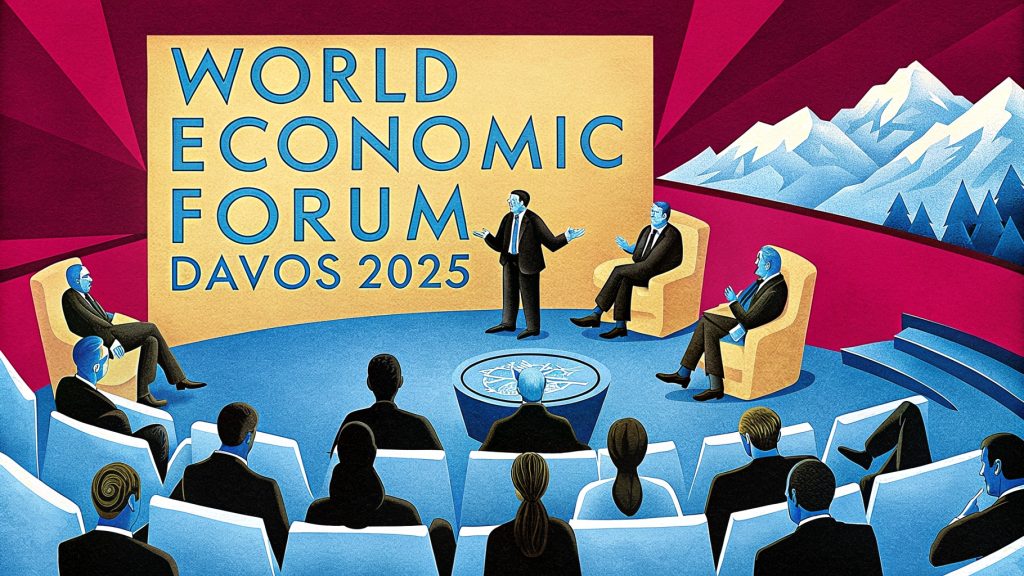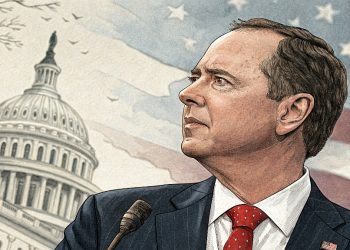
Global Leaders Discuss New Frameworks, Personal Impact, and Innovation in Blockchain
As the global conversation around digital assets intensifies, the World Economic Forum (WEF) has made cryptocurrency regulation and its societal impact a centerpiece of the annual Davos summit in 2025. Top government officials, fintech leaders, blockchain developers, artists, and everyday crypto users gathered in the Swiss Alps to discuss how emerging regulations will shape the future of digital money, innovation, and global finance.
The session, titled “Crypto at a Crossroads,” attracted international attention and highlighted a clear shift in attitudes. Once the subject of skepticism and caution, cryptocurrency is now seen as a catalyst for economic empowerment, decentralized innovation, and new models of personal finance. The WEF’s high-profile event underscored both the challenges and opportunities as nations consider a unified yet flexible approach to policy.
Davos Summit Sets the Stage for Crypto’s Next Evolution
The World Economic Forum is renowned for bringing together influential voices to address global issues. This year, the focus on crypto at Davos marked a pivotal turning point. Organizers designed the session to encourage open, nuanced conversations about regulation, risks, and the role that blockchain technology might play in future societies.
Attendees included central bank governors, startup founders in the decentralized finance sector, established financial executives, and activists using crypto for humanitarian efforts. The collaborative tone reflected a broader desire to move past old debates and explore policies that balance innovation with user protection.
What “Crypto at a Crossroads” Explored
The session covered several critical areas, offering insight into how policy leaders and stakeholders see the digital asset landscape unfolding over the next decade.
1. Global Regulatory Frameworks Emerge
One major theme was the emergence of new global frameworks for cryptocurrency oversight. Panelists discussed the importance of cooperation between regulators across continents. The European Union’s Markets in Crypto-Assets (MiCA) regulations, recent updates from the US Securities and Exchange Commission, and projects to standardize anti-money laundering protocols were all mentioned.
Participants from Asia, Africa, and Latin America added their perspectives. They called for adaptable policies allowing countries to innovate while reducing risks of fraud, scams, and illicit finance. Many agreed that overly strict or fragmented regulations would drive activity underground, while harmonized global standards could foster safe adoption.
2. Innovation and Economic Growth
A consistent message was that thoughtful regulation can unlock, rather than stifle, economic innovation. Technology executives described how blockchain is fueling new businesses, jobs, and financial products—from NFT-powered art platforms to programmable money in decentralized apps.
Pioneering startups shared stories of raising venture capital and launching services only possible with blockchain. Leaders urged governments to avoid blanket bans and instead offer clear guidelines that encourage responsible experimentation and allow growth for compliant projects.
3. Crypto’s Personal and Social Impact
The session devoted time to the real-world stories of people using crypto beyond speculation. Panelists highlighted case studies from artists selling NFTs to fund community projects and refugees accessing financial services with stablecoins when cut off from banks.
Social impact entrepreneurs discussed how blockchain-powered remittances are reducing transfer fees for families separated by borders. The narrative expanded, showing crypto as a powerful tool for self-determination, not just an investment vehicle.
4. Decentralization and New Governance Models
A significant part of the discussion focused on how decentralized cryptocurrencies and platforms challenge established systems of power. Panelists described emerging forms of community governance, such as decentralized autonomous organizations (DAOs), and how they can promote transparency and user choice.
Questions around privacy, digital identity, and the role of intermediaries sparked debate. There was consensus that real progress depends on involving users, developers, and policymakers in creating governance models that balance freedom with security.
Calls for Pro-Innovation Policy
Throughout the session, leaders emphasized the need to support innovation rather than stifle it. Several policymakers stressed crypto’s potential for democratizing finance, removing barriers for entrepreneurs, and helping emerging economies leapfrog traditional systems.
A leading European regulator stated, “We must build frameworks that are flexible enough for rapid change, but robust enough to protect consumers. Collaboration is the only way.”
Industry representatives responded by committing to responsible self-regulation, transparency, and open data sharing to help authorities detect abuses without limiting legitimate activity.
The Role of NFTs, DeFi, and Emerging Use Cases
Beyond currencies, the session explored the explosion of NFTs, decentralized finance protocols, and other blockchain applications. Speakers described NFTs’ role in empowering creators, musicians, and athletes to earn directly from their audiences without intermediaries.
DeFi experts noted the growth of platforms offering loans, insurance, and asset management tools outside traditional banks. They argued these innovations expand access to capital and financial tools, especially in underbanked regions.
Panelists praised the creativity and entrepreneurial energy coming from NFT artists, DeFi builders, and game developers, all of whom are testing the boundaries of what is possible in digital ownership and finance.
Challenges and Open Questions
Despite the optimism, the World Economic Forum acknowledged persistent challenges. Cybersecurity risks, privacy concerns, regulatory arbitrage, and the environmental impact of some blockchains were topics of serious discussion.
Experts agreed that technology alone will not solve these problems. Ongoing education, international cooperation, and regular dialogue among all stakeholders are essential for finding practical solutions.
The session ended with a call for collaborative research between governments, academia, and the private sector to better understand the rapid pace of technological change and its societal implications.
Human Stories Highlight Crypto’s Transformative Power
A unique aspect of the Davos session was the focus on personal narratives. A Ukrainian refugee described using a mobile wallet to receive crypto donations when banking was unavailable. An artist from Kenya shared how NFT proceeds allowed them to launch a sustainable fashion line. A Latin American fintech founder spoke about helping small businesses survive economic uncertainty through blockchain-based lending.
These stories helped anchor the discussion in lived experience, emphasizing the technology’s human and social dimensions. Attendees said these examples will inspire further work to ensure cryptocurrency benefits as many people as possible.
Future Steps After Davos
The World Economic Forum’s crypto session closed by outlining partnerships and pilot projects set to begin in 2025. Several countries announced regulatory sandboxes for testing innovative digital asset products in a risk-controlled environment. Industry groups committed to joint working groups on interoperability and privacy by design.
The event proved that crypto is no longer a fringe topic at major policy gatherings. As regulations and technology both advance, governments, businesses, and citizens are finding new ways to work together.
The energy at Davos signaled a new chapter for the intersection of blockchain and public policy. Far from being an abstract or speculative technology, cryptocurrency and decentralized finance are now active parts of the global conversation on economic opportunity, governance, and innovation.
As leaders left the Swiss mountains, there was a shared understanding that the choices made today will help determine how digital assets and blockchain shape society for generations to come. The coming months and years will show how these new frameworks unfold, but the foundation set at Davos is already guiding crypto toward a future with more clarity, inclusivity, and creative freedom.

















